Search
Did you mean: Agora?
Search Results
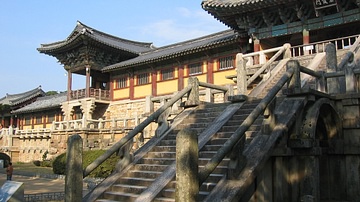
Definition
Bulguksa Temple
The Bulguksa Temple (aka Pulguk-sa Temple or 'Temple of the Buddha Land') was built in the 8th century CE on the wooded slopes of Mt. Tohamsan at the ancient Silla capital of Geumseong (modern Gyeongju, South Korea). The Buddhist temple...

Definition
Gyeongju
Gyeongju (Kyongju), formerly known as Seorabeol or Saro, was the capital of the Silla kingdom of ancient Korea from the 1st century BCE to the 10th century CE. Located in the south-east of the Korean peninsula, at its peak in the 9th century...
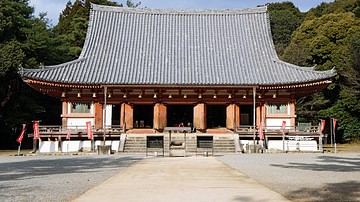
Definition
Daigoji
Daigoji is a Shingon Buddhist temple complex in Kyoto (ancient Heiankyo), Japan, which was founded in 874 CE by the scholar monk Shobo (aka Rigen Daishi). The site established close ties with the imperial family and became an important place...
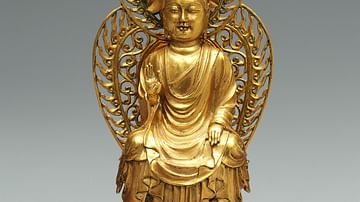
Article
Buddhism in Ancient Korea
Buddhism, in Korean Bulgyo, was introduced by monks who visited and studied in China and then brought back various Buddhist sects during the Three Kingdoms period. It became the official state religion in all Three Kingdoms and subsequent...

Definition
Ancient Korean Architecture
The architecture of ancient Korea is epitomised by the artful combination of wood and stone to create elegant and spacious multi-roomed structures characterised by clay tile roofing, enclosures within protective walls, interior courtyards...
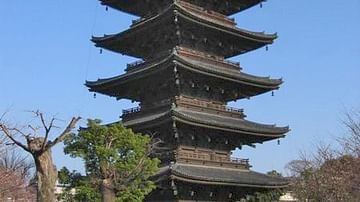
Definition
Heiankyo
Heiankyo (Kyoto), located in the centre of Honshu island, was the capital of Japan for over a thousand years and gave its name to one of the golden ages of Japanese history, the Heian Period (794-1185 CE). Built according to Chinese design...
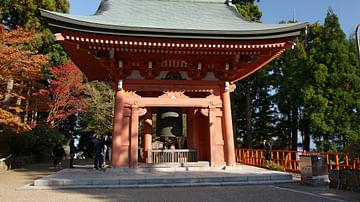
Definition
Enryakuji
The Enryakuji is a Buddhist monastic complex on the sacred Mt. Hiei, near Kyoto, Japan. The site was selected by the monk Saicho to become the headquarters of the Tendai sect, which he founded in Japan in the early 9th century CE. Enryakuji...

Definition
Mount Koya
Mount Koya (aka Koyasan), located in the Wakayama Prefecture, south of Osaka, Japan, is the site of a temple complex founded in 819 CE by the scholar monk Kukai as the headquarters for Shingon Buddhism. There are temples and sacred buildings...

Article
Ten Great Stupas from Around the World
A stupa is a reliquary containing the remains (relics) of an individual associated with great spiritual power and insight, most often (since the 3rd century BCE) with the Buddha (l. c. 563 - c. 483 BCE). The form, a hemisphere topped by a...
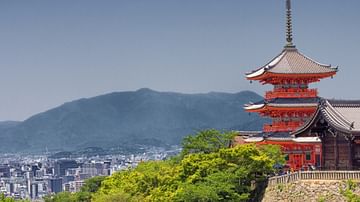
Image Gallery
A Gallery of Ancient Japanese Pagodas
In this gallery, we look at some of the most famous pagodas in Japan, many of which are classified as National Treasures. Pagodas are tall, multi-storied structures which traditionally featured as part of Buddhist temple complexes. The tallest...